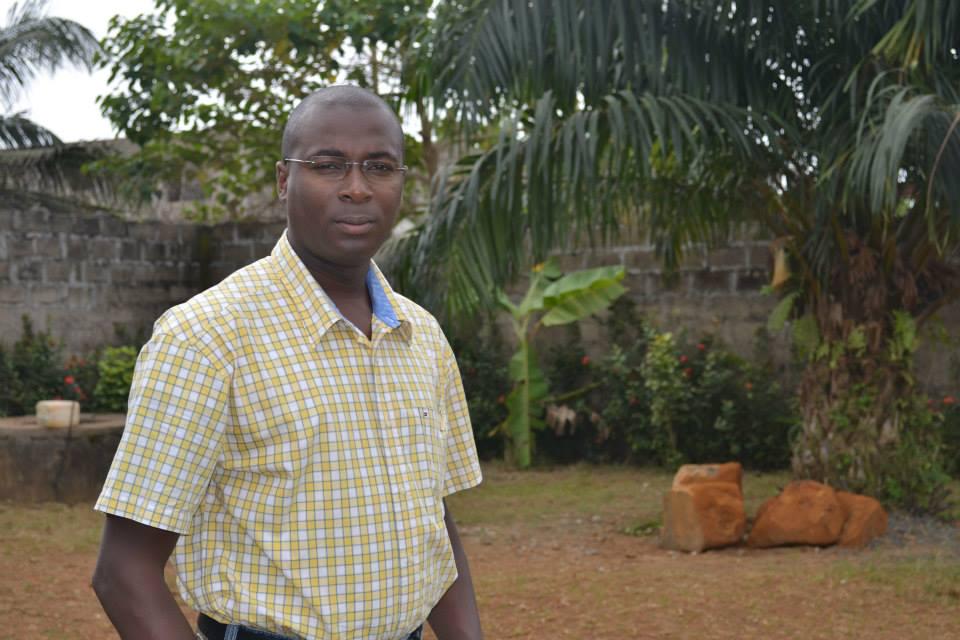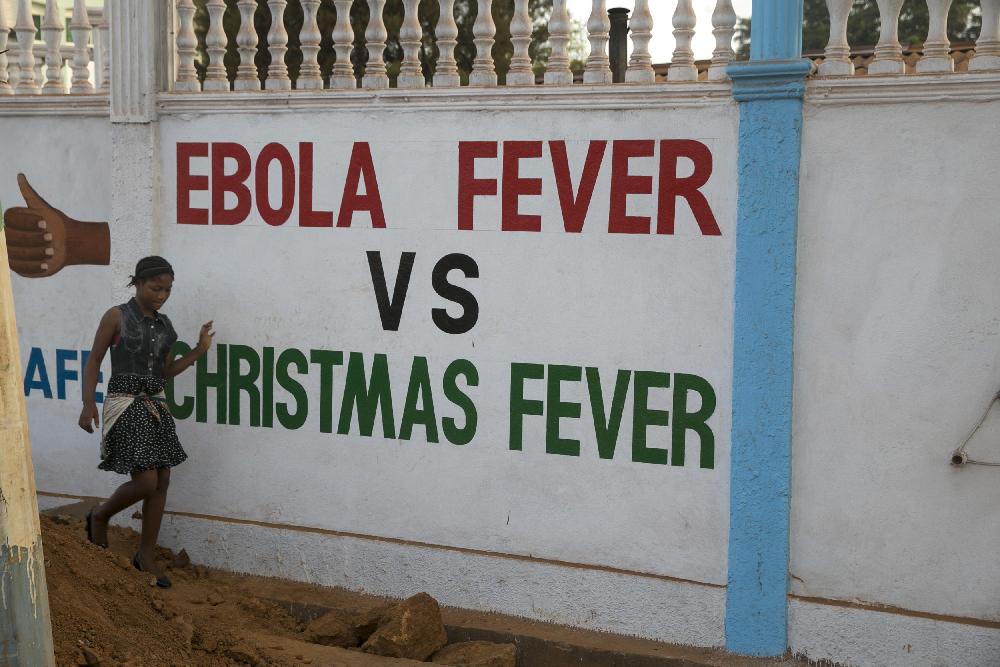
Everybody (in Slovenia) we came in contact with wanted to know more about the situation first hand. I wouldn't say that they feared contracting the Ebola virus from us.
At the beginning of the outbreak many health workers got infected and died, which caused fear and distrust in the health system and government. People started hiding, denying that they were sick.

Ernest Boakai is a Liberian who lives in Lenart. Every year, several times, he travels back and forth between Slovenia and Africa. The Ebola outbreak is no longer on the front pages of world media. But the deadly virus is still claiming the lives of his countrymen. It is also causing major damage to the economies and social welfare of the affected countries.
Shop owners in the Liberian capital Monrovia say that since the Ebola outbreak, there has been no business, airlines have increased prices and people have stopped traveling. They just sit where they are. People are becoming tired of living.
Flying out of Liberia this summer was also a challenge for Ernest Boakai and his Slovene family. "It was close to impossible to fly out because airlines started cancelling trips to Liberia and ticket prices skyrocketed. There were only two flights flying out of Liberia and only one was coming to Europe, making it really difficult to get a seat. However, we were lucky and managed fly out for Slovenia via Brussels."
During departure at the airport in Monrovia, everyone had to disinfect their hands, have their temperatures taken and fill out a questionnaire. When they finally arrived in Brussels there wasn't anything, not a single test, they didn't even take their temperature.
Ernest says people are afraid. "I too was afraid of being infected, because I'm a people person. I was very cautious and my wife was very much afraid," adds Ernest.
No one knows the exact number of people that have died from the Ebola virus. When people catch a cold or have a flu, or even die after suffering from diarrhea or high blood pressure, no one can say for sure whether they had carried the virus. According to the WHO, the Ebola death toll in the three West African countries, hit hardest by the epidemic, has risen to almost 8,000.
According to Ernest, the affected countries are not in need of funds, but of experts, medical staff, equipment, facilities, emergency vehicles etc. That's why Ernest started his own initiative, making a call to doctors and health workers from Slovenia, specialized in infectious diseases, to go help people in Liberia and at the same time gain valuable experience.
"West Africa has no logistics, infrastructure or trained health staff to handle the influx of infected people. At the beginning of the outbreak many health workers got infected and died, which caused fear and distrust in the health system and government. People started hiding, denying that they were sick."
The government measures triggered panic among the general population
"People didn't understand measures like “Don’t eat or sell bush meat” or “Don’t shake hands” or “Don’t touch a sick person”. Why? These are customs and habits people have been practicing since as far back as they can remember. Bush meat - our ancestors have been eating bush meat for ages as hunting for a living is widely practiced in the rural parts of Liberia. Handshaking – how can we stop this, it’s part of our culture. And when a loved one is sick, you cannot help but touch and assist that person."
When Ernest returned to Slovenia, he says he was accepted well and that nobody showed any signs of discomfort. "Everybody we came in contact with wanted to know more about the situation first hand. I wouldn't say that they feared contracting the Ebola virus from us. This was also one of the reasons why I started my campaign, to enlighten the Slovenian population as to how to prevent and deal with a single Ebola case or situation, should it occur in Slovenia."
For more information and ways to help out you can contact Ernest Boakai at his web page.
Another way to help fight the epidemic and help Ebola victims is visiting the site of the Ceres Institute, set up by a Zimambwean living in Slovenia, Dr. Walter Chingwaru. A charity sale of art pieces is underway through the Institute's EbolaWAR project.
Korab Jorgacieski
Everybody (in Slovenia) we came in contact with wanted to know more about the situation first hand. I wouldn't say that they feared contracting the Ebola virus from us.
At the beginning of the outbreak many health workers got infected and died, which caused fear and distrust in the health system and government. People started hiding, denying that they were sick.

































































